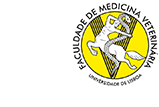Broilernet - BIOSECURITY - Portuguese Good Practices from the project's 1st Cycle
2024-04-17Intro to Good Practice
The creation of sanitary barriers through the implementation of changing rooms and the restriction of visits, limiting these to the strictly essential, and carrying out a rigorous visitor control
and registration, proves to be a fundamental pillar for the biosecurity of poultry farms.
The adoption of these measures involves the installation of physical barriers (nets and gates) and the installation of changing rooms capable of acting as sanitary filters.
All visitors, prior to entering the sheds, must take a shower and wear appropriate clothing provided by the farm.
Adapting a barn to these procedures, involves physical investments but also investments on adequate training and awareness of staff.
These measures make it possible to substantially reduce the risks of contamination and disease transmission and consequently reduce animal suffering and increase economic benefits as a result of the reduction of health risks and contingency interventions.
Background & challenges
- Visitors or technical staff entering poultry houses increase the risk of disease transmission
- Improve the animal health management on farm by improving biosecurity
- Creation of sanitary barriers with the implementation of changing rooms and visits restricted to minimum required, as well as their control
- Improve public health by reducing potential disease spread and improving sanitary conditions
- Improve animal welfare by limiting diseases
Additional information
Member states of the European Union have the possibility of integrating this measures to encourage and support this type of investment on good practices into their Rural Development programs.
Creation of sanitary barriers involves physical investments that could exceed 100 000 euros , a cost that could be quite variable depending on the starting situation and the location of the
installations.
Training and awareness of the farm personnel for non exceptions procedures are key factors for success of biosecurity measures
Benefits
- Improvement of farm risk management
- Reduction of disease transmission and, consequently, reduction of possible bird suffering caused by the adverse effects of diseases
- Improvement of economic results by reduced mortality, less sanitary contingency interventions needed, and better productivity
- Better potential sanitary status
- Better market and marketing image and liability
BroilerNet FactSheet AH1_c1_3 - Good Practices (.pdf)

